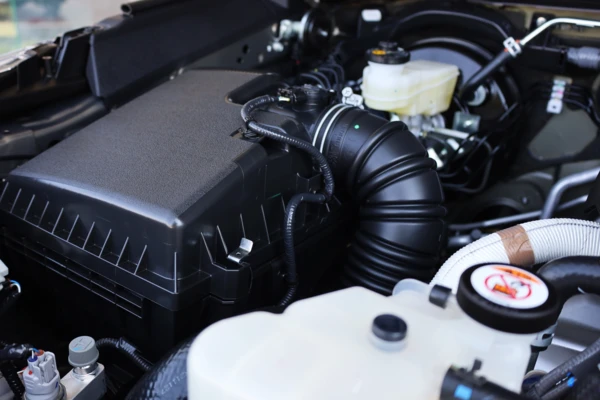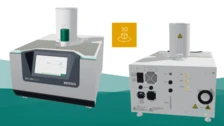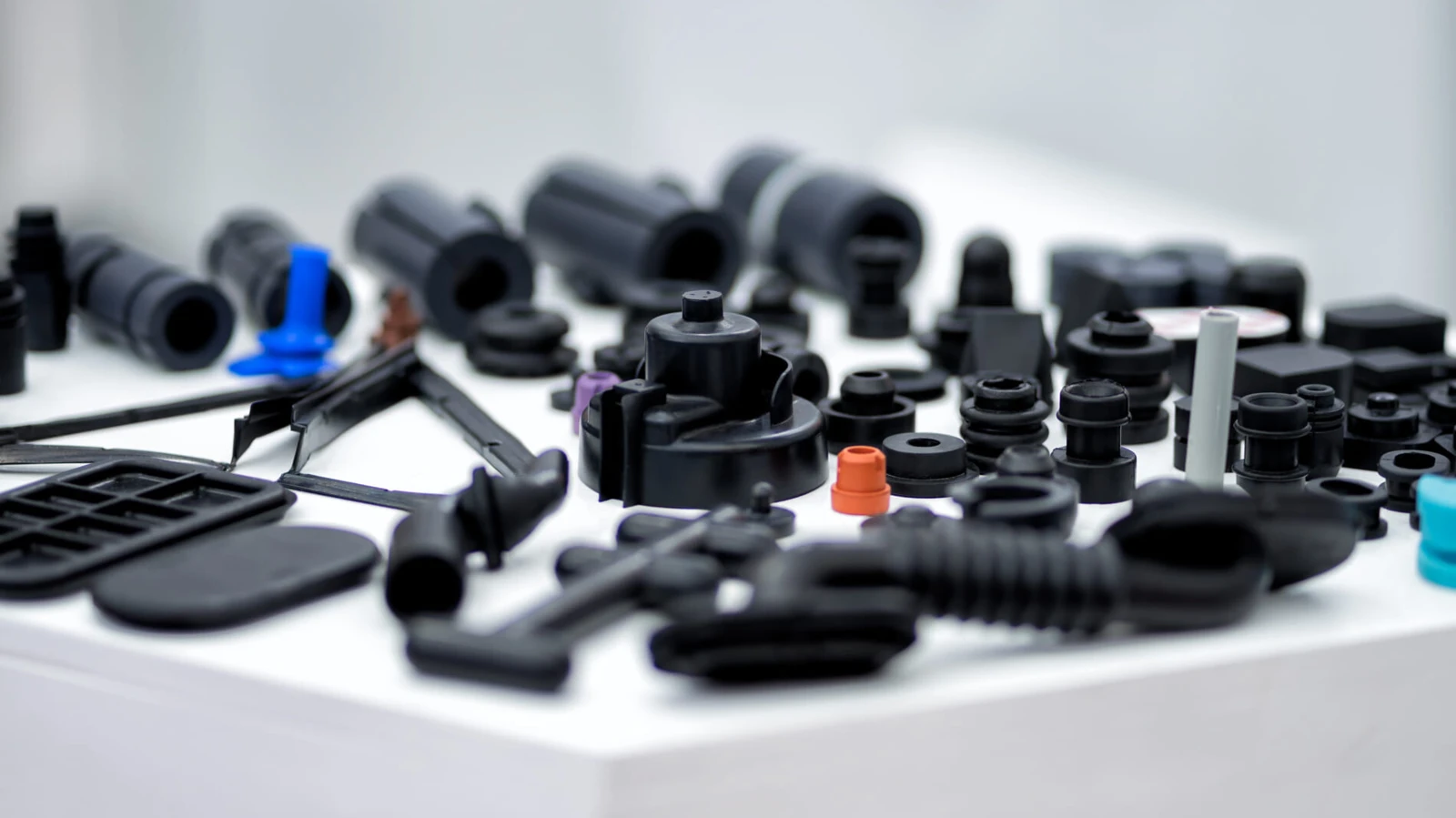
09.02.2023 by Dr. Natalie Rudolph
Failure Analysis of Automotive Thermoplastic Parts by Means of DMA
Thermoplastic parts can fail. However, when they do, the first priority is to identify the root cause of the failure and to eliminate it.
Failure analysis of injection molding thermoplastic parts requires a high level of expertise in material science, production methods and analytical instrumentation. There is a wide range of failure scenarios. These range from misuse and inadvertent service conditions to design faults, molding problems, ContrainteLa Contrainte est définie par un niveau de force appliquée sur un échantillon d’une section bien définie. (Contrainte = force/surface). Les échantillons qui possèdent une section rectangulaire ou circulaire peuvent être comprimés ou étirés. Les matériaux élastiques comme les élastomères peuvent être étirés jusqu’à 5 à 10 fois leur longueur initiale.stress, overload and degradation during use.
NETZSCH Thermal analysis instruments are powerful tools for failure analysis
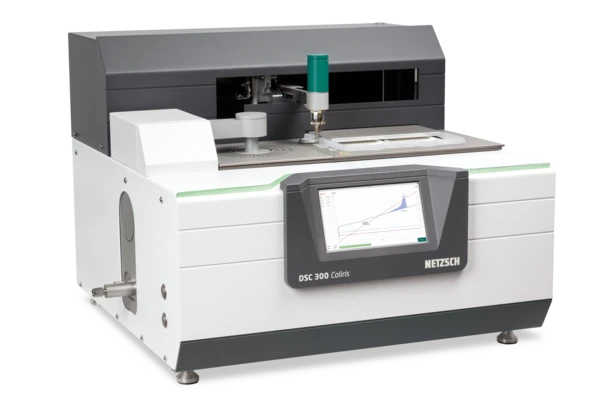
Differential Scanning Calorimetry (DSC) can answer questions like
- Is the material contaminated with another material?
- Is the supplier specification for the material composition correct for my thermoplastic product?
- What is the crystallinity of the material? Is there any potential for Post Crystallization (Cold Crystallization)The post crystallization of semi-crystalline plastics occurs primarily at elevated temperatures and increased molecular mobility above the glass transition.post-crystallization?
Thermogravimetric Analysis (TGA) helps to find answers for
- Is the material filled with the right amount of fillers, plasticizer and modifiers?
- Is the material thermally stable to withstand service temperatures?
- Did the material absorb water?
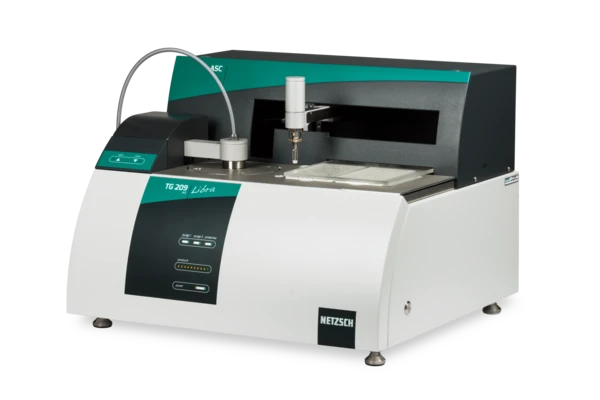
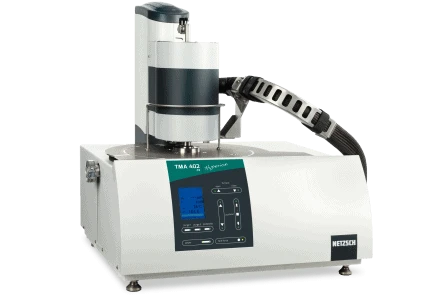
Thermomechanical Analysis (TMA) can answer questions like
- Does the material change its dimensions at operating temperatures?
- Was there residual stress in the molded part?
Dynamic-Mechanical Analysis (DMA) also plays an important role in finding the reason for the failure of a part. Using DMA gives answers to questions such as
- Does the material have the required mechanical properties at operating temperatures?
- Is the material degrading faster than expected?
- Does the material lose its mechanical properties due to the interaction with liquids?
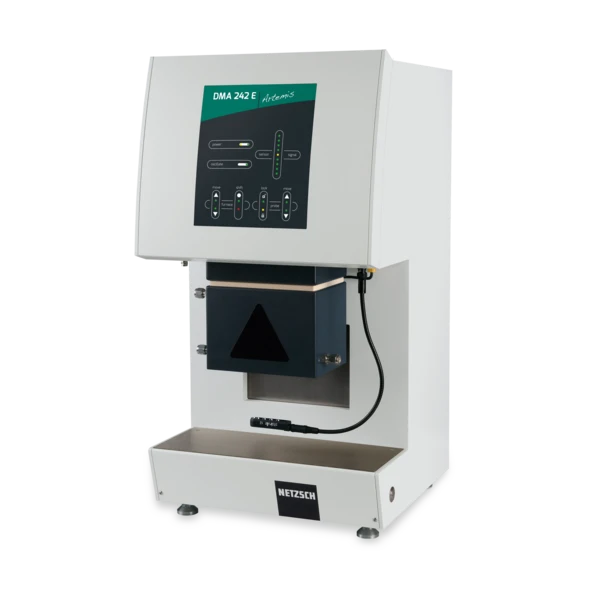
In this article, we will provide deeper insights into the failure analysis of thermoplastic parts by means of DMA.
Common Causes of Failure of Automotive Thermoplastic Parts
Failure of injection molded thermoplastic parts comes in many forms. Often, the material selected or the process used to manufacture parts and components is the cause of the problem. Whenever faulty parts occur, it is important to find the cause of the failure so that the production process, material or design can be readjusted to avoid long-term costs.
We investigated one common failure of thermoplastics and show, how Dynamic-Mechanical Analysis can help determine the cause of failure:
Breakage of a Thermoplastic Part Under Stress
In polymers, gases, organic solvents, colorings and also moisture can diffuse into or through the material. However, absorbed moisture changes the properties of polymers. This also includes the mechanical properties of a polymer, e.g., the modulus, which is a measure of the resistance to elastic deformation. The failure of a thermoplastic part under stress can also be related to the uptake of moisture into the material. A dynamic mechanical analyzer (DMA) equipped with a humidity generator can help determine the mechanical properties at different levels of humidity.
In figure 2, a polyamide 6 (PA) sample was measured at a frequency of 1 Hz and a temperature of 40°C in tension mode. The relative humidity was stepwise increased from 0% to 75% over time. The stiffness (described by the storage modulus E’) of the material was measured in these relative humidity steps. It is clearly visible that the stiffness of the material decreases with the increase in relative humidity. At relative humidity of 50%, the storage modulus decreased by approximately 74%.
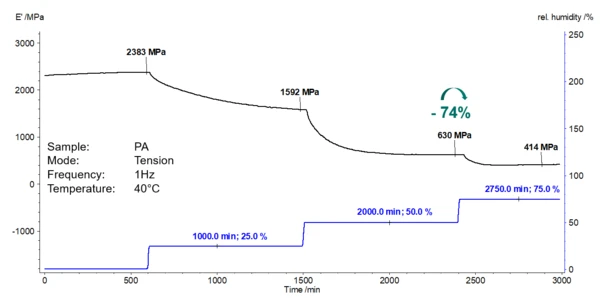
This example shows how important it is to know the mechanical properties of a polymer under the conditions of use in a car and in different climates. It is therefore essential to use thermoplastic materials in the design of automotive parts and components that perform sufficiently under these conditions. Moreover, this example of a common cause of failure of thermoplastic materials shows how Dynamic-mechanical analysis can help determine reasons of failure. Analyzing materials with a DMA 242 E Artemis provides insights into temperature-depended viscoelastic properties such as stiffness and damping behavior.
Learn more about failure analysis of plastic parts using Dynamic-Mechanical Analysis:
Register for our webinar on March, 16!
Jeffrey Jansen is an expert in failure analysis and will talk in this interview with Dr. Natalie Rudolph about his work. He will answer questions about the most common failures, how one of the major causes is creep and how it can be analyzed using Dynamic Mechanical Analysis.
Session 1: 10 - 11 AM CET / 5 PM CST
Session 2: 4 - 5 PM CET / 11 AM EDT
